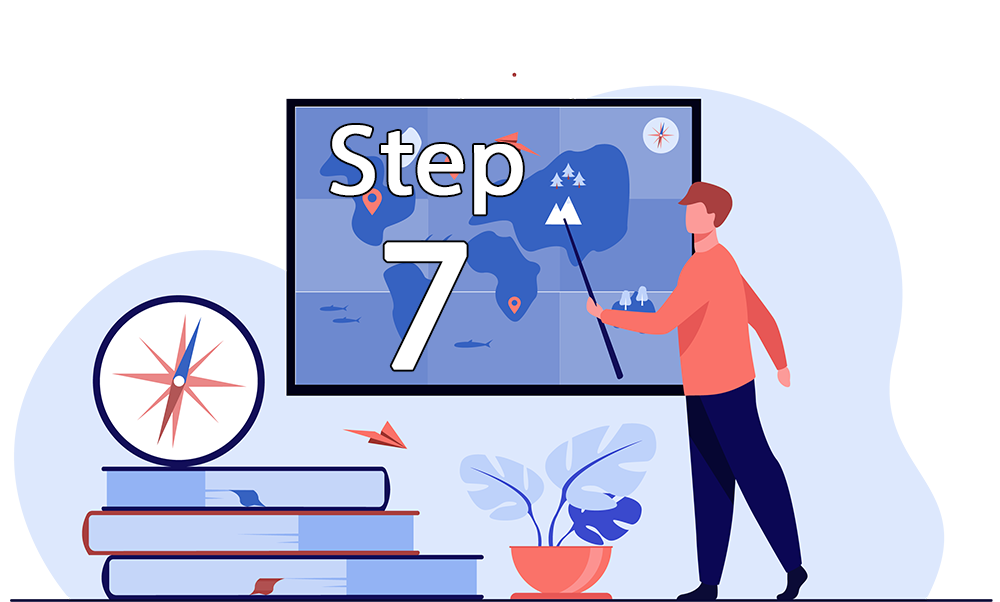Outside skills can go on your resume!
This lesson is called “Outside Skills” and will explain the difference between listable and non-listable skills.
Let me explain why this is important to know…
Somewhere along our lives, we got the impression that we had to learn all our skills on a job.
If that were true…
All musicians, all artists, all game-makers, and all craftmakers, would never be able to say they had skills.
They learned their skill outside of a job. You learned things outside a job that may come in handy in a later job – and that can count on your resume if it follows these rules:

What counts? What doesn't?
Start a new skills category on your paper. Write…
- Anything you can say you have some decent skill in. If you can make something with it, it’s countable. If someone might buy it from you or have you make it for them – it’s countable.
- You have done it professionally for money, on the side, small jobs, or unprofessionally for someone else, such as raking the leaves of an elderly person’s yard.
- You’ve studied it intensely in school, to the point of conversational fluency or “enough to do a good project with”.
- You’ve taught yourself to do it. For example, a web platform like WordPress or a computer program like Blender – an intensive course where you learned something in detail and you can still use, even if out of practice.
What can’t be listed:
- Things you went down the rabbit hole with on Google/Wikipedia/Youtube
- Things you have not physically done yourself.
- Things you copied from someone else and wish to pass off as your own work (like plagarism of any form).
- Things you “just started on” but have not completed fully, at least to the point where you can show someone some proof.
College Skills and Course Skills
Every experience and college class has given you the basics of some skill.
- Take the top 5 classes you had, classes you “got” or loved working on projects in.
- Write a few skills from those classes you loved, using the MBM/HBH/etc formula.
- Generic-ize one or two skills of the strongest skills out of them.
- List those one or two on your resume under the skills category or under your college experience in a few major bullet points.
- Courses and Certifications, same principle! Repeat!
You might be thinking: “But those skills don’t rank high enough to be counted!”
Hirers want to see what you think you’ve gained from college or previous jobs, in the form of a few skills or values you’ve gained or, if possible, what value you’ve added to something. There is no such thing as a skill rating system, or level in which a skill becomes valid. As long as it fits the guidelines above – it’s valid.
(And it’s ok if you don’t have any of this if you haven’t been through college, courses, or certifications!)
Examples - Bad
Programs learned
“Used CAD and Cinema4d to make character models for video advertisements.
Projects completed
“Completed visual presentation for major corporation with a team of professionals and classmates”
Topics Covered
“Learned cost-benefit analysis to determine project scopes, affordability vs benefits for construction.”
Examples - Good
The trick is to show your knowledge and skills you’ve learned without making it too specific. Generic-ify!
Taking one bad example above:
“Learned cost-benefit analysis to determine project scopes of a small construction project at college”.
Why?
Because now, your skill is directly focused on the small construction project at that one specific college – your skill is now limited to that one and only thing.
Good examples from above:
“Used CAD and Cinema4d to make character models.”
“Completed visual presentation with team”
“Learned cost-benefit analysis.”
(Yes, “Completed and Learned” are usually bad verbs to use, but this is under your college/courses section, and it’s fine there.)
No, you don't need certifications or formal education to justify your skill.
Musicians, artists, game developers, craftspeople, etc don’t need certifications or formal education to justify their skill.
You don’t either, no matter where you got the skill from.
Except for specific training-heavy jobs…or jobs dealing with people’s lives. I’m never talking about doctors, lawyers, engineers, scientists for example.
For almost all other jobs, you only need to prove to a hiring manager that you can do what they need done – using examples and experiences. Certifications make it easier to see up front, but isn’t as much of a requirement as you’d think.
Some jobs do want certifications – but if you can prove you have the skills and you’re a good candidate for the job otherwise, SO many jobs are often willing to overlook certain certification requirements or pay for you to get them on the job!
What's next?
Your core skills inventory is done! Congrats! But you’re not done yet…
You now have a perfect skills list, and now we’re going to transform that into a perfect resume.
And this can be used for any job you want…
What does this skills list mean for your future?
"How does this matter to other jobs?"
What you’ve just done is made your listed skills field-less. This means they are not specific to one job only, instead they are useful across multiple jobs, across multiple career paths, across multiple ladders!
Skills – core, transferable skills like the ones you just made, are inherently Field-less!
“How exactly are skills field-less?”
Your titles and job duties stay with the job. This is why our current hiring system of listing things in a job duties/titles way...SUCKS. When you lose your duties and title, you may feel like you lose your sense of self, and your sense of self worth.
Skills stay with you.
Knowing this is the KEY to how people jump career ladders.
Just one skill is useful across so many different careers! Let’s take one example from a “server” job. Clean and bus, and reset tables for guests. Basically, cleaning.
Hmm, what other jobs need a cleaning skill? Nearly every service, warehouse, or trade job on the planet!
Wait…don’t recruiters differentiate cleaning a restaurant table from cleaning an office?
Nope.
People tend to overestimate recruiters in how they fill a job role. Most of the time, they will contact someone if even a hint of a skill exists that they are looking to connect with a job! After all, if it’s a fit, they make money. They are incentivized to fit you to a job.
Feel free to ask one if they care about the difference between cleaning a restaurant vs cleaning an office.
A skill is a skill is a skill – and there is no such thing as levels of skills. It’s AMOUNT of skills and KEYWORDS of skills that matters more!

Examples:
Retail – You handled money and credit cards. Basically, you processed payments. What other jobs process payments? Accounting, billing, general offices, financial….
Teaching – You analyzed documents. What other jobs analyze things? IT, financial, social media, marketing, healthcare billing…
Example Skills Lists
(from past clients who gave me permission to share these with you!)
Siobahn’s Skills List: SiobahnSkillsList.docx
(This is a finished skills list to give you a example of what yours should look like.)
Adrian’s unfinished Skills List: AdrianD-Resume
(He put this into a resume format but should not have – jumped the gun a bit early. This is before his skills list was generic-ized, same-skills cut, and bullet-pointed fully. I include this here to give you an example of a semi-finished skills list!)
